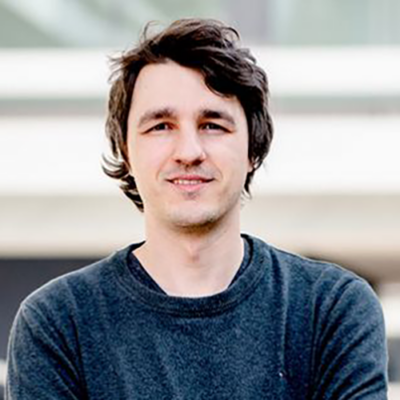Prof. Jonathan Bedford
At the 10th International Summer School on AI and Big Data, Prof. Jonathan Bedford will talk about Applying machine learning to geodetic and scaled fault zone laboratory data to understand earthquake processes.
Talk: Applying machine learning to geodetic and scaled fault zone laboratory data to understand earthquake processes
Our measurement of Earth’s surface deformation is ever-increasing spatially and temporally. From these measurements we can now clearly see that fault zones are constantly deforming, and that the key to understanding earthquake occurrence is understanding the evolution of the “silent” deformation that occurs in between events. With our growing geodetic dataset comes the exciting possibility that we could one day be able to forecast fault behaviours, including slower deformation processes and perhaps even the deadly, faster earthquake events that create seismic waves.
To get to that stage, (1) many developments must be made with how we process our geodetic data and (2) we also need to capture more earthquakes. The second part is particularly problematic from a data perspective as the larger, most devastating events are not happening so often in nature. To overcome this deficit in observations, one strategy is to create a lot of laboratory events from scaled models of subduction zones. In these analog models, we can recreate thousands of events and record them with cameras and accelerometers.
In this presentation I will show how our international team is working towards cleaner geodetic measurements of tectonic processes and better understanding of fault zone processes using various machine learning approaches.
Prof. Jonathan Bedford
Prof. Jonathan Bedford did an Undergraduate and masters degree in University of Leeds (Geophysical Sciences) with international year abroad in Colorado School of Mines. His PhD at FU Berlin/GFZ Potsdam was on understanding the GNSS-measured deformation associated with two large earthquakes (Maule 2010, Magnitude 8.8; Iquique 2014, Magnitude 8.1). Bedfords postdoctoral research (GFZ Potsdam) focussed on (1) developing algorithms to better isolate tectonic motions from GNSS time series and (2) using laboratory earthquake data from scaled analog models of subduction zones to probe the physics of earthquake recurrence (“earthquake cycle”) behaviour. He is currently at RUB leading an ERC Starting Grant team that aims to accelerate our understanding of transient tectonic process using GNSS, laboratory, and numerical data.



